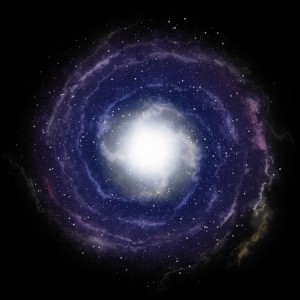I am lucky to live and work in Montana, which means I get a lot of drive time. Unlike my city-dweller friends, drives in Montana include mountain passes, buffalo herds, and irregular access to gas stations. Trips between towns can easily exceed three hours, and so podcasts are a welcome addition to the books-on-tape and agriculture talk shows that help pass the time.
One of my favorite podcasts is On Being with Krista Tippett– a show that explores the big questions of meaning in modern life: What does it mean to be human? How do we want to live? And who will we be to each other? Two recent podcasts – one with Nobel physicist Frank Wilczek; the other with author Elizabeth Gilbert– tapped my own ponderings about the work I do: What does it mean to be a “community builder,” a collaborator, someone who believes not only that good is possible, but that good is our natural state of being?
Wilczek spoke with Tippett about what he’s learning as he probes the essential laws of the Universe (his Nobel Prize is for work about quarks). At the core of most truths, he says, lies the concept of “complementarity,” in which two seemingly incompatible truths are held in tandem.
“You have to view the world in different ways to do it justice,” Wilczek says. The different ways can each be very rich, but they may be mutually incompatible. Yet to do “full justice to reality, you have to take each into account.”
In my work as a collective impact coach and facilitator of community collaborations, I engage many people, each of whom bring their own rich combination of experiences, preferences, beliefs and passions. There is rarely “one truth” in our work. For example, when working to address the root causes of health disparities, one could work on housing, or food security, or wages and income, or education; each approach is valid. The work (and art) of choosing a path forward must allow for other options, though not taken, to be valid.
When Tippett asks Wilczek how his work has influenced the way he moves through life, Wilczek responds that he is more tolerant of people, that he can more easily step into another’s shoes. I believe that level of tolerance, of humility and curiosity, is essential to collaboration.
Elizabeth Gilbert (famous for the book Eat Pray Love) explores creativity in her conversation with Tippett. Gilbert defines creativity as “choosing the path of curiosity over the path of fear.” She goes on to describe her own relationship with creativity, and her fascination to demystify it, to invite more creativity into our lives.
I love Gilbert’s emphasis on curiosity, as curiosity plays a large role in my work. I see community collaboration ultimately as a creative process of exploring what is possible, together. Rarely do I enter a facilitation with a solid sense of where the work should land, or how key decisions will shake out. I try to remain open and curious about the people, the process and the work we do together.
Gilbert goes on to describe the creative process. She shares experiences in her life that have led her to believe that ideas are “conscious and living… they spin through the cosmos, looking for human collaborators.”
In other words, the Universe is looking for collaborators.
Through notions like complementarity, I believe that we are fundamentally built to discover ways to connect with one another, while allowing for our differences to remain. It takes curiosity to explore how we can come together to realize our deepest aspirations for the communities we live in and the world we share.


Thanks Deb for sharing your inspiration and insight. Paradox is common within complex systems and seems to me to be tied to the complenatarity nature of the cosmos. Complex systems are beyond any one player’s control. Paradoxically, achieving change within such systems demands skilled leadership. I too enjoy the putting curiosity as the opposite/antidote to fear. Collaboration requires change. Curious people are willing to change. The fearful resist change. I look forward to what you learn on your next Montana drive.
Thanks for your good insights, Chris! I hope our paths cross again soon…